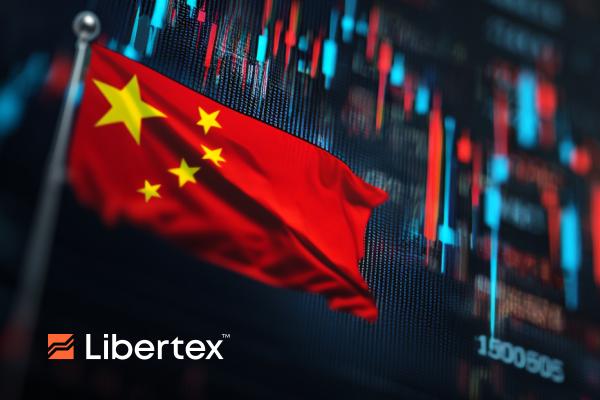In a US-centric world, it's easy to forget that the world's second-biggest economy has a very well-developed stock market of its own. Conveniently for Western investors, it's also one that is totally uncorrelated with US and European equities. Despite China's command economy and more active interventionism, Chinese stocks are still an excellent diversification asset for any investment portfolio. The China A50 index of the 50 highest-market-cap companies on the Mainland is up 9.3% over the past 12 months, which means it has performed exactly as well as the supposedly 'most lucrative' US index, the Nasdaq 100, over the same period.
With a clear shift in policy from the government over the past year or so, China's massive tech sector has boomed and is beginning to look more attractive than US stalwarts. Alibaba and Tencent are up around 32.8% and 19.8% YTD, compared with respective losses of 19.4% and 8.7% for Apple and Alphabet. Meanwhile, Xi Jinping's defiant stand against Trump's trade sabre-rattling this April showed that China is a genuine challenger to the US economically. But what does all this mean for Chinese equities, and how will these factors take shape over the rest of this year and beyond?
Home is where the heart is
After intense regulation and anti-monopoly laws were brought in just before and during COVID, many were worried that the Chinese tech sector would struggle to bounce back. But bounce back it certainly did, and this was in no small part due to a conscious shift in domestic policy by the Chinese government. It began in the last quarter of 2024, when the government announced 800 billion yuan of liquidity support for the stock market, with a 500 billion yuan swap facility for brokers and funds and a 300 billion yuan refinancing facility for companies and shareholders for stock buybacks. Then, at China's National People's Congress on 5 March 2025, it provided more targeted stimulus for AI and tech, including increased spending through special sovereign bonds totalling over $1.5 trillion.
This saw the investment unit of China's sovereign wealth fund directly buy stocks while the central bank rolled out swap and re-lending tools to provide liquidity to the market. And now, Beijing's latest reform to allow Hong Kong-listed companies to seek secondary listings in Shenzhen could see China's most valuable tech companies, like Alibaba Group Holding and Tencent, return home. For startups, too, the regulatory climate is also changing for the better. At the annual Lujiazui Forum in Shanghai on Wednesday, Wu Qing, chairman of the China Securities Regulatory Commission (CSRC), said listings would be restarted for pre-profit firms seeking to trade on the Shanghai exchange's much-hailed Star market. This policy shift seems to be building trust abroad, too, as several major US-listed ETFs tracking Chinese stocks recorded inflows of $401.7 million in May following losses in previous net months.
New kid on the block
If the most recent trade stand-off between the US and China taught us anything, it's that China is no longer supplicant and is willing to challenge the US for the title of undisputed world hegemon. Unlike in Trump's first term, Xi didn't blink this time round and led the US to inflict significant economic self-harm on its prized domestic tech sector to the delight of Chinese counterparts Tencent and Alibaba. It even forced Washington to initiate the negotiation procedure. This shift in international power relations didn't go unnoticed by investors and, as HSBC Asset Management wrote in a report on 17 June, Chinese equities are relatively resilient in large part thanks to "the end of US exceptionalism".
What's more, contrary to US tech stocks, which are still overpriced despite the trade war-related correction, Chinese AI and other tech giants like Alibaba, Tencent, and JD.com represent good value with very reasonable P/E multipliers of 15, 21 and 8, respectively. And while efforts to attract many of the larger caps to list back on the Mainland with the new tech-focused exchanges in Shanghai and Shenzhen, these listings are intended to be secondary, and it's clear that Hong Kong's Hang Seng will continue to play a role as a bridge between the West and East as China's standing in the world increases. Last month's Hong Kong IPO of already Mainland-listed battery tech giant Contemporary Amperex, which raised HK$35.7 billion and closed up nearly 17% on its first day of trading, is evidence of this nascent trend. US$80 billion has already entered Hong Kong from the Mainland this year up to May, and the amount for the whole year is predicted to be US$180 billion, an amount equal to half the foreign inflows into US stocks in 2024.
Trade Chinese CFD stocks and more with Libertex
Libertex is a reputable online broker with a multi-decade history and an offering that includes a wide variety of CFDs from stocks, commodities, and indices all the way through to forex, options and even crypto. From China, Libertex offers CFDs in all the major tech stocks, including Alibaba, Baidu and Tencent, as well as the China A50 index and iShares China Large-Cap ETF for more diversified traders. For more information or to create an account of your own, visit www.libertex.com/signup today!

